Gold industry’s reform efforts marked by fears and finger-pointing
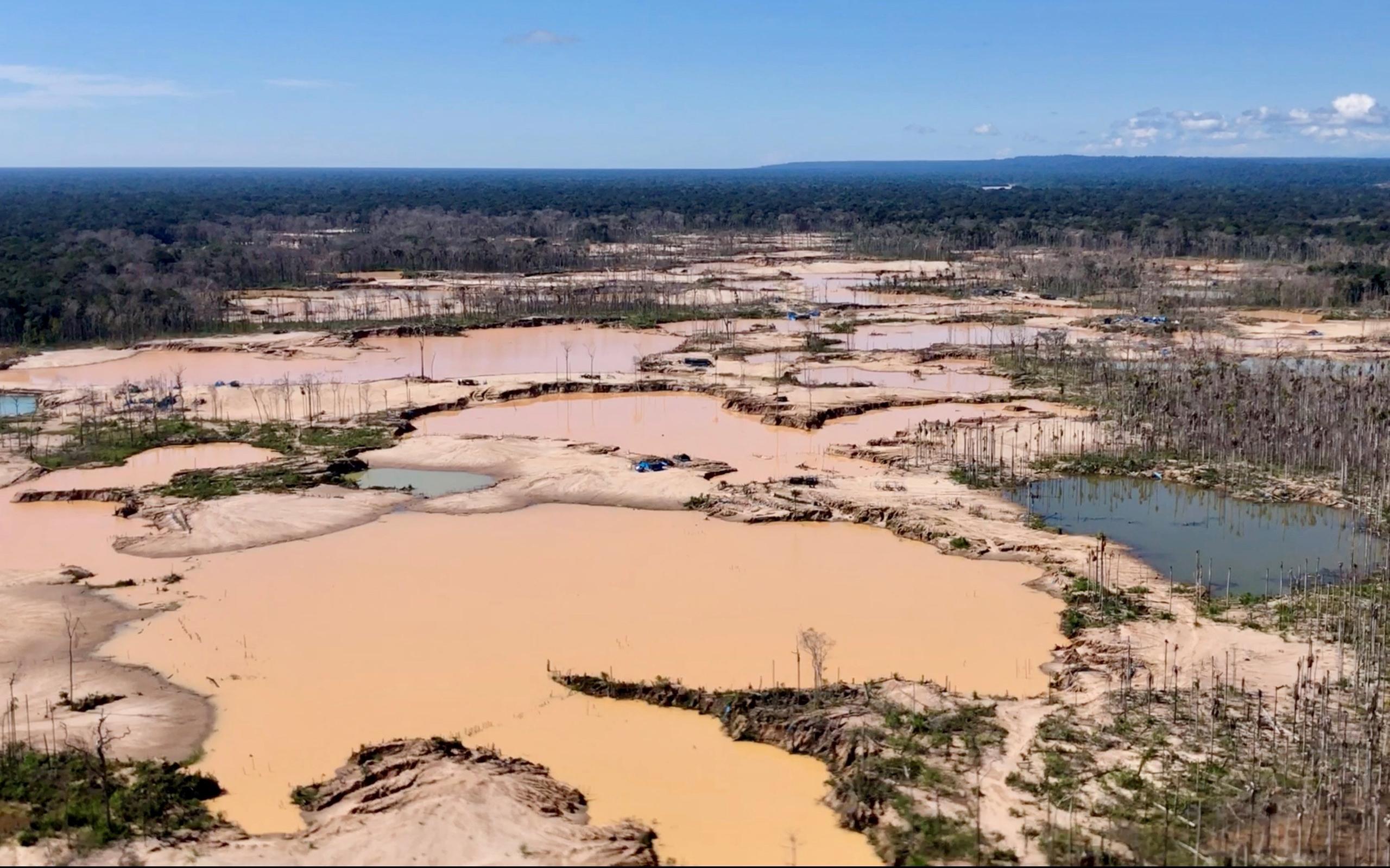
With a pandemic driving up gold prices and a looming Swiss vote over corporate responsibility, gold refiners are under increasing pressure to guarantee a clean supply chain. But they say they can’t do it alone, and that the Swiss initiative to involve the courts goes too far.
Swiss refiners, which process some 70% of the world’s gold, have long been dogged by accusations of sourcing from countries where mining has involved environmental devastation and human rights abuses.
Artisanal and small-scale mining (ASM), which employs 15-20 million workers globally, has been of particular concern as poor miners are often unable to invest in clean technology and work methods to extract the precious metal. Although ASM-sourced gold constitutes only about 1% of the global supply, in some countries it is much more. In Peru, for example, 20-30% of production is estimated to come from smaller, independent miners.
The pandemic meanwhile has also strengthened gold’s status as a safe-haven asset. Historic gold prices spurred illegal mining even as some countries declared states of emergency over the coronavirus. Recently, satellite images confirmed new deforestation linked to mining in areas of the Peruvian rainforest, with increased activity also occurring in Brazil.
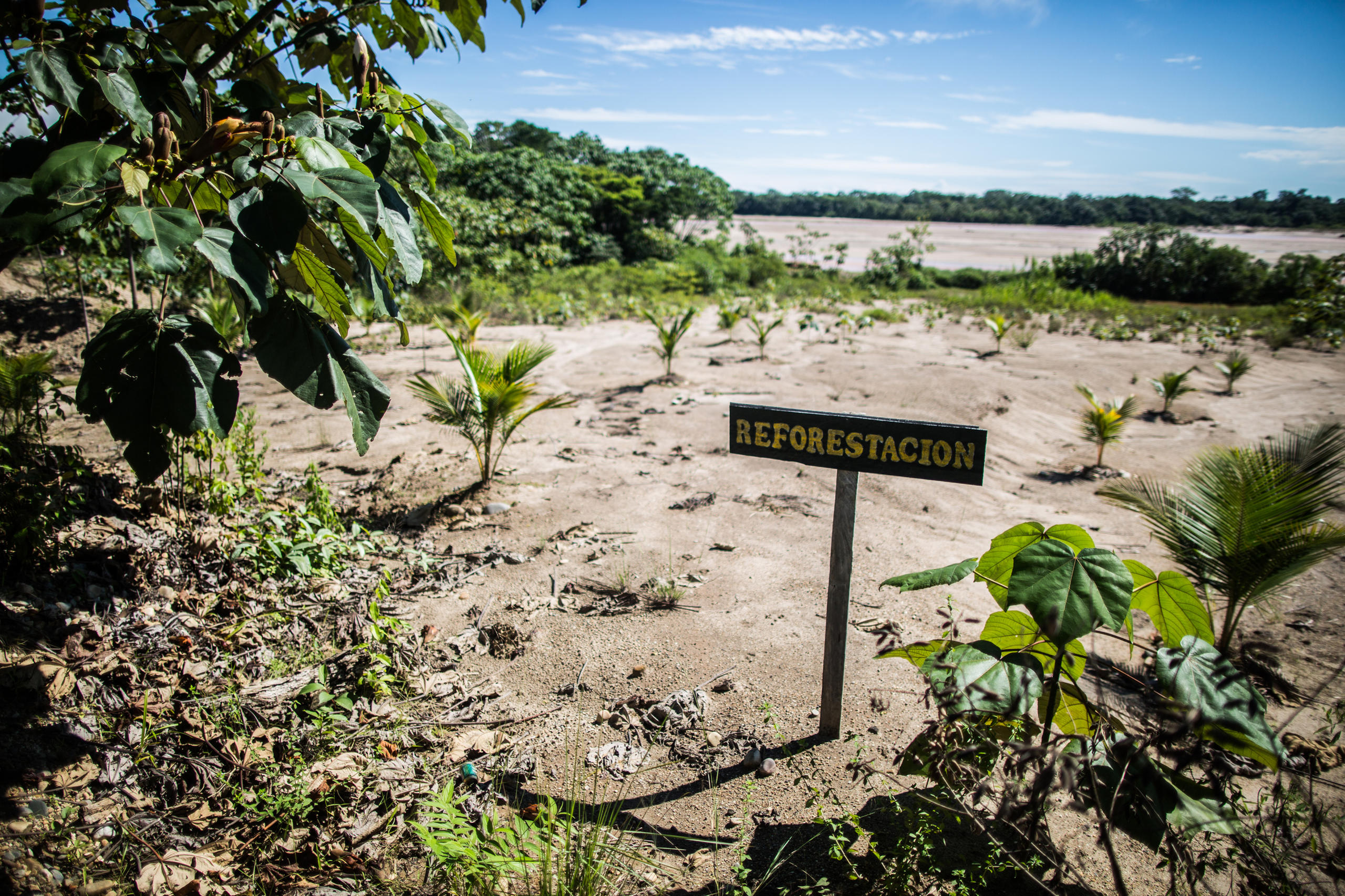
More
Why Switzerland struggles with dirty gold
External link“Gold is becoming so much more interesting than drugs. Forget cocaine in South America,” said University of Basel professor and governance expert Mark Pieth. “Why not produce gold? You won’t go to prison.”
That demand, coupled with the Responsible Business Initiative vote on November 29 aimed at holding Swiss multinationals accountable for abuses abroad, has increased the pressure on refiners to address problems in their supply chains, particularly surrounding ASM.
Difficult relationships
“Doing business with ASM is complex and challenging, and we cannot do it alone,” said José Camino, general counsel at Swiss refiner Metalor. The company had been suspected by Peruvian prosecutors of purchasing illegally sourced gold through intermediaries, in regions where deforestation, mercury use and trafficking of girls and women took place. The company has denied the charges.
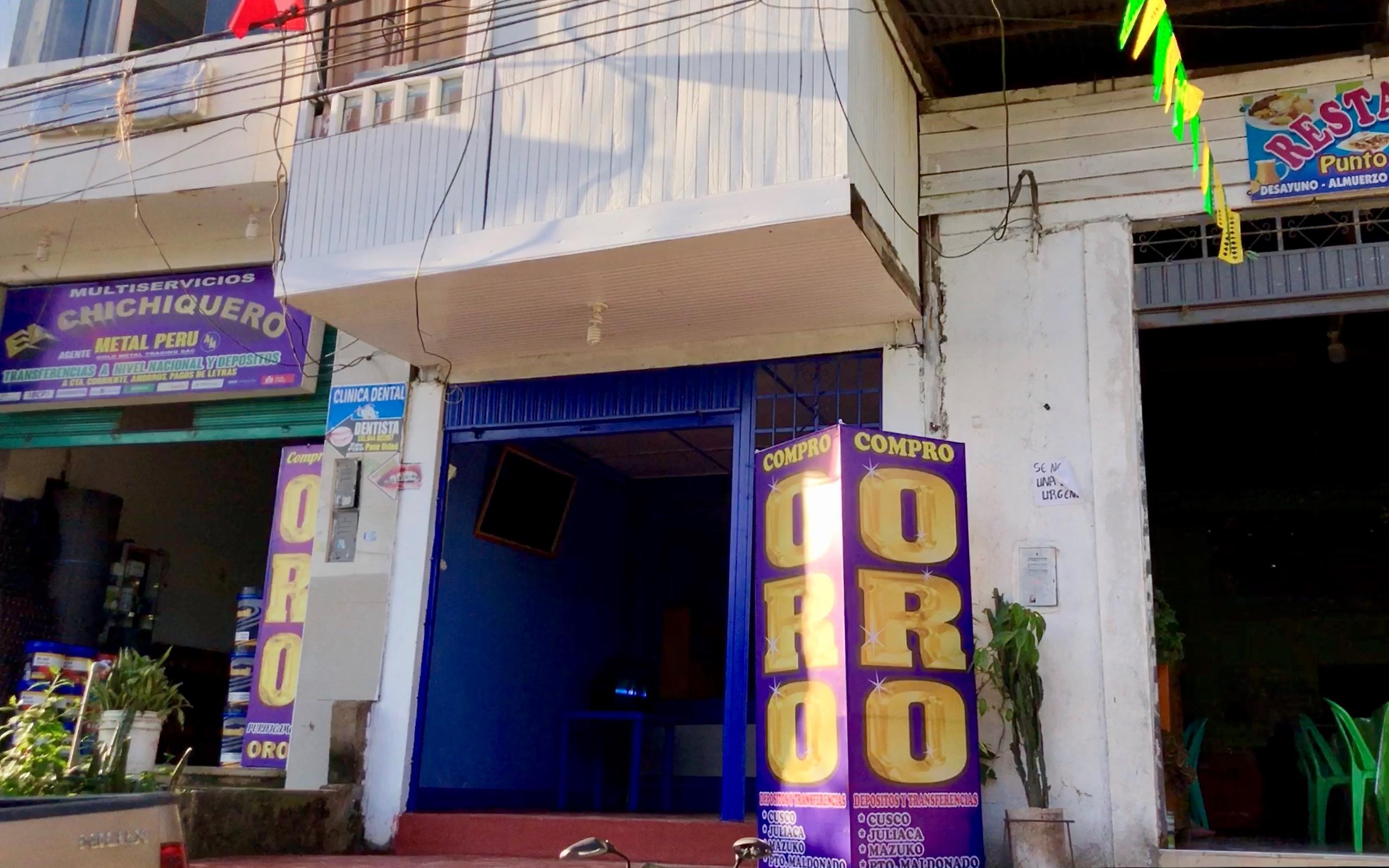
Valcambi, another Swiss refiner, began processing artisanal gold from Colombia after joining a programme in 2019 aimed at helping ASM producers build sustainable and responsible supply chains.
But a recent investigation by Global WitnessExternal link accused Valcambi of sourcing gold from Kaloti, a Dubai-based trader which in turn obtained the metal from mines in Sudan where human rights violations are committed and that are controlled by militias involved in war crimes.
Whose responsibility?
Because of their role as major buyers of gold, refiners are generally viewed as the industry’s gatekeepers, having the greatest leverage over sources and government officials when it comes to influencing practices and policies.
But Christoph Wild, CEO of Ticino-based refiner Argor-Heraeus, argues all stakeholders are responsible for improving supply chains. “Refineries are often called the gatekeepers of the industry. We have a certain responsibility sitting in the middle of the chain, which is often very complex,” he told an online conference held last month by Pieth and the Basel Institute on Governance.
Wild said the manufacturing, electronics and luxury industries buying from the refiners, as well as banks, government authorities, NGOs and the end consumers, share a responsibility to enforce greater supply chain transparency. He specified that this might mean paying more for gold products and that “the end consumer has to understand that the process of responsible extraction and sourcing and traceability can command a premium, which he or she has to pay”.
Andreas Missbach, head of commodities at civil society group Public Eye, is critical of refiners relying on other stakeholders to lead the change. “Gold is not a product where you can rely on customer focus to exert pressure for lasting change in the industry. They are only a fraction of the demand. On the other hand, you have investors, banks, central banks, which don’t ask those kinds of questions.”
Christoph Wiedmer agrees. He directs the NGO Society for Threatened Peoples (STP), which has long demanded greater accountability by refiners. He says the many steps involved in the gold supply chain allow each party to ignore what he calls the most important issue: the conditions under which the gold is extracted.
“If you ask Rolex for example, or Credit Suisse, they would say – if they say anything – the name of the miner, nothing else. If you ask the refiner, they would only say that they buy clean gold and that they are governed by institutions. Unfortunately, even these institutions do not know under what conditions the gold was produced.”
Laying down the law
Metalor and Valcambi’s experiences show the difficulty in guaranteeing that “dirty” gold is kept out of the supply chain. A Valcambi spokesperson said that the company conducts the most stringent due diligence before entering into any business relationship.
Supporters of the Responsible Business Initiative argue that corporate responsibility must be held to account through the law. The initiative would allow defendants to sue corporations for abuses committed abroad in Swiss courts.
But the gold industry, and the Swiss refineries at the centre of it, argue that the initiative goes too far and that they have already made significant efforts in setting and adhering to high production and traceability standards.
An example is the London Bullion Market Association (LBMA), the global trade group representing major players in the market, which established its own Responsible Gold Guidance standards based on principles set by the Organization for Economic Co-operation and Development (OECD). Members are required to undergo regular “third-party” audits looking at where they source gold from and how.
But a recent Global Witness report called into question the effectiveness of such reviews, stating that the LBMA needs to further improve its system for assessing gold producers and refiners.
In 2013 a whistleblower at accounting firm EY (Ernst & Young) revealed that while the firm was conducting an audit in line with the LBMA’s standards, it had helped cover up a review of Kaloti’s business practices. The review included buying silver-coated gold bars from Morocco to avoid export restrictions.
Susannah McLaren, compliance and sourcing chief at LBMA says the auditing they require their members to do to is fully independent. She adds that the refiner pays for the process which may be done by any of the world’s four largest auditing firms.
Like other associations of which refiners are part, such as the Responsible Gold Council, the LBMA relies on the goodwill of its members to implement human rights and environmental standards, which are essentially voluntary.
Sustaining early momentum
Although the measures taken until now are far from perfect – and not legally binding – critics of the Responsible Business Initiative say a “yes” in November’s referendum may thwart any momentum in cleaning up the gold supply chain. The initiative had been formulated with weak governments and judicial systems in mind where authorities may be swayed to defend powerful international firms rather than their own populations.

More
Vote November 29: Spotlight on ethical business practices
Diana Culillas is secretary-general of the Swiss Better Gold Association (SBGA), a government-supported non-profit which helps small-scale miners produce gold in a sustainable, environmentally and socially responsible manner. She says working with authorities under the terms of the Responsible Business Initiative could be challenging, as the SBGA experienced when trying to develop legal frameworks for small-scale miners to stop using mercury.
Some fear that Swiss businesses may decide to divest or pull out of doing business in countries where they view the risk as too high, if the referendum allows foreign plaintiffs to sue in Swiss courts. This, they say, would leave a vacuum in the gold business for players who are less equipped or less ready to try to guarantee sustainable supply chains.
“Zero risk does not exist and the initiative will bring some legal uncertainties that we consider are not in favour of promoting Swiss companies to do business in those countries,” Camino of Metalor said in a written response that also underlined the refiner’s commitment to doing business ethically.
Pieth, however, rejected the argument that refiners may be dissuaded from proceeding with “cleaner” gold measures should the referendum pass. “It’s a form of disinformation, because people are panicking due to this initiative.”
For Missbach at Public Eye, which was part of the campaign that launched the Responsible Business Initiative, the upcoming vote is about something bigger. He says it’s part of a global “trend” towards mandatory human rights and environmental due diligence.
“Switzerland, as a host country and one of the most important refining countries in the world, has a role to play,” he says. Recognising the changes made by some – but not all – refiners, he added: “Companies are operating at different speeds, and this is where mandatory rules set a clear line.”

More
High gold prices spur more illegal mining in Peru

In compliance with the JTI standards
More: SWI swissinfo.ch certified by the Journalism Trust Initiative








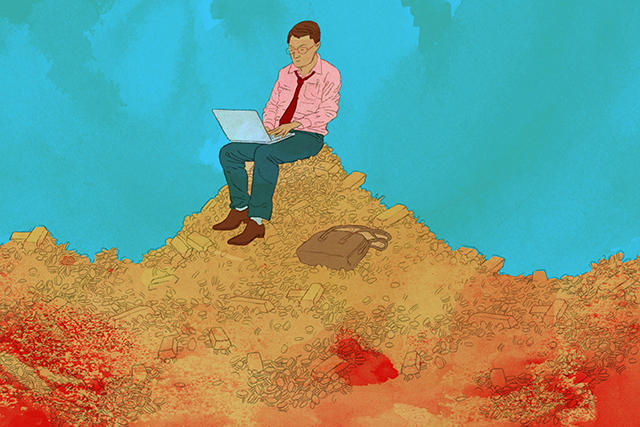
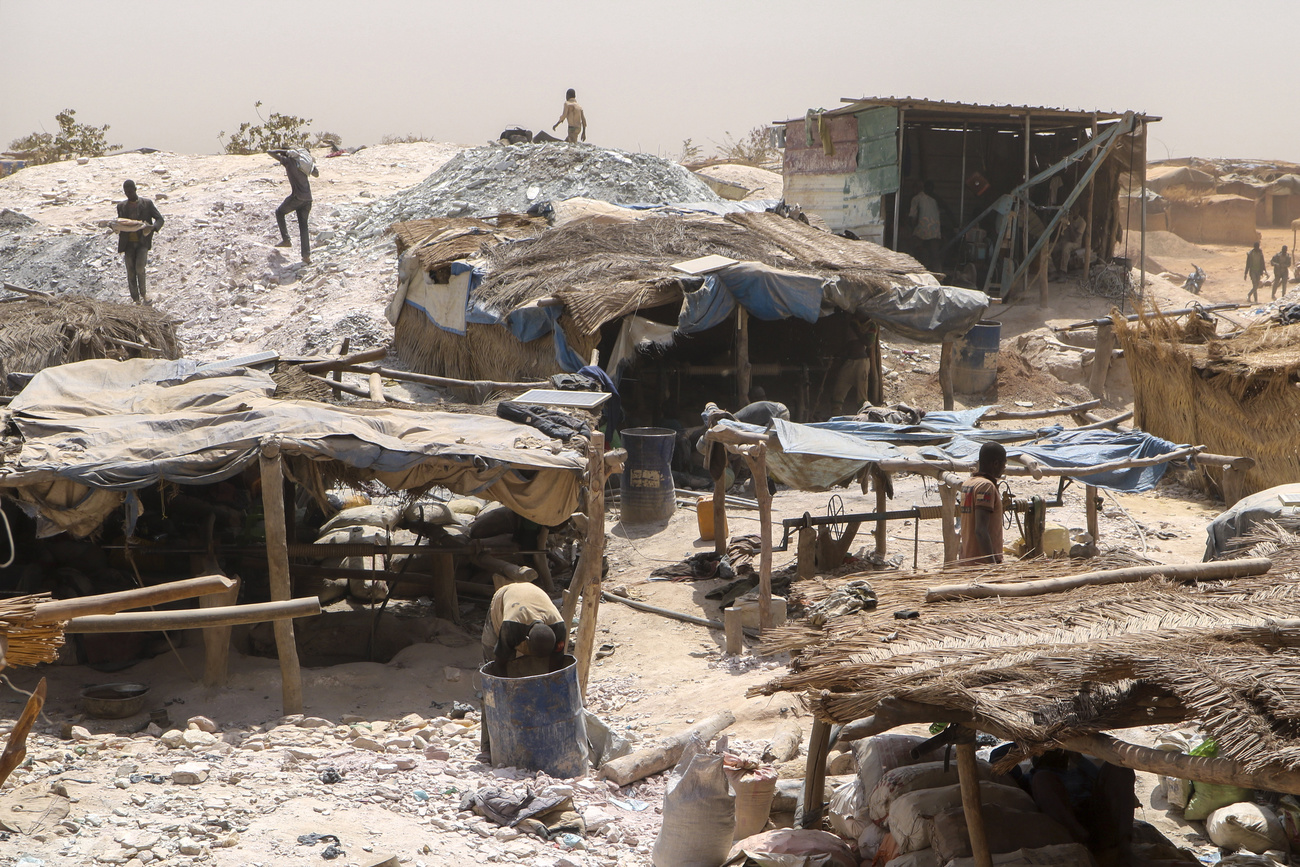
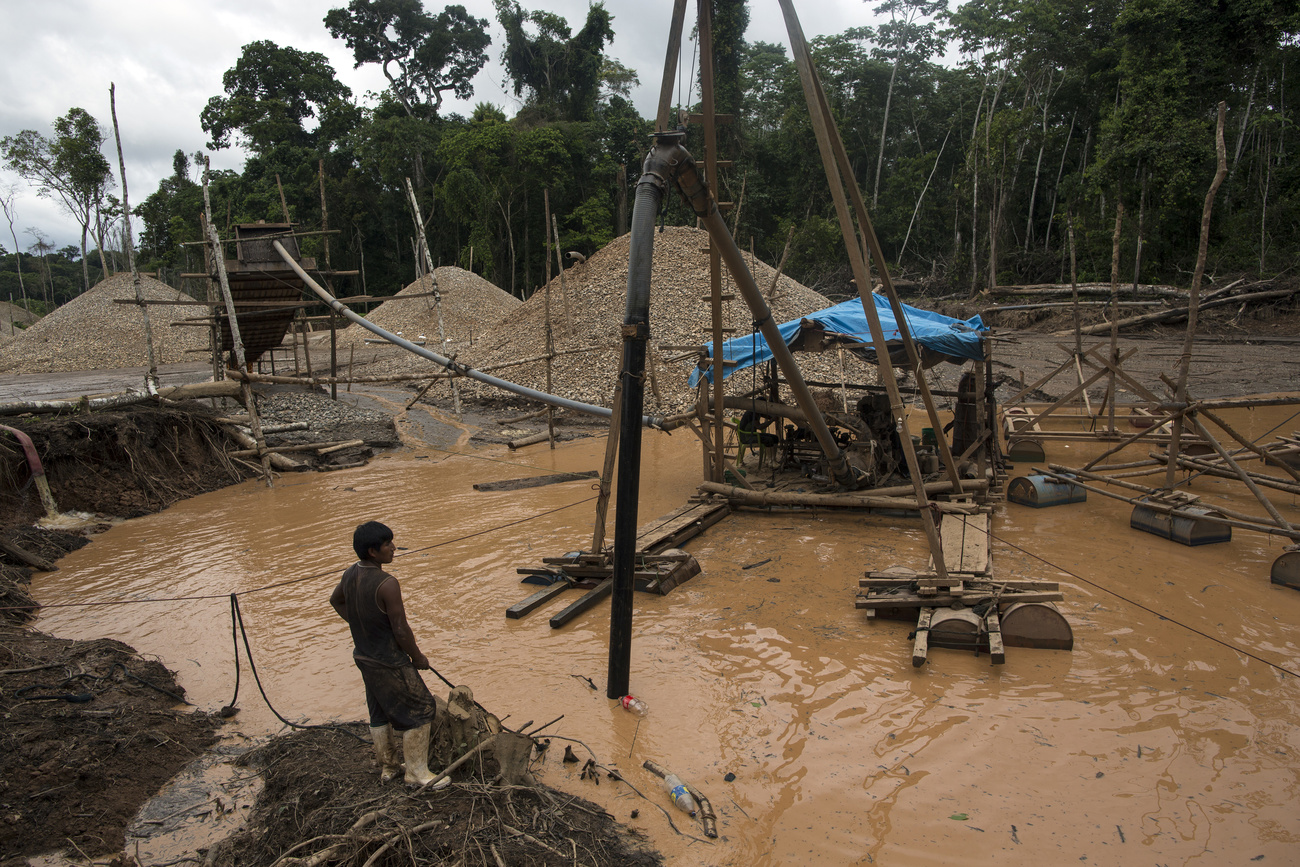
Join the conversation!